Past Events
December 2025 | |
| Thu 4 Dec 2025 11:00 - 18:00 | 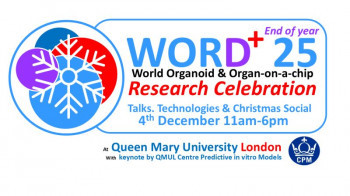 Christmas Research Celebration - Queen Mary & WORD+ World Organoid and Organ-Chip Community Christmas Research Celebration - Queen Mary & WORD+ World Organoid and Organ-Chip CommunityCentre for Bioengineering Join us at QMUL Centre for predictive in vitro models, London, as we celebrate the latest advancements during 2025! Speaker line-up includes: Keynote. Professor Martin Knight, CPM, QMUL. AstraZeneca: Dr Carol de Santis, Clinical Pharmacology & Safety. Cardiff University: Dr Luned Badder, School of Medicine. Cosyne Therapeutics: Dr Julia Kleniuk & Dr Zoe Smith. GSK: Dr Lisa Mohamet, Target Discovery. Imperial College London: Dr Tamas Korcsmaros. ... |
November 2025 | |
| Wed 26 Nov 2025 11:00 - 12:00 | 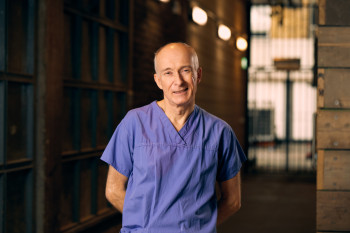 Seminar: Robotics seminar: Soft Robotics, Surgeons and the Pathway to Surgical Application, by Prof Martin Birchall Seminar: Robotics seminar: Soft Robotics, Surgeons and the Pathway to Surgical Application, by Prof Martin BirchallCentre for Advanced Robotics ARQ Robotics seminar Title: Soft Robotics, Surgeons and the Pathway to Surgical Application Speaker: Prof Martin Birchall Abstract: Engineering advances may enable development of implantable artificial muscles. Lessons from previous implant experience must be applied to ensure best outcomes, maximum uptake and reduction of avoidable risk. Affordable solutions realistically able to recoup development costs are key, but could generate conflict between scrupulous selection of patients and... |
| Mon 24 Nov 2025 12:00 - 13:00 | 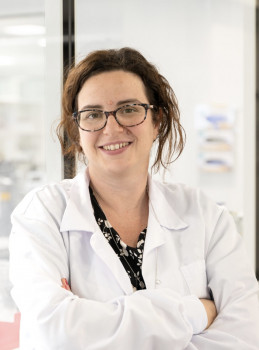 SEMS Seminars: Dr Daniela Marino, CEO of CUTISS AG SEMS Seminars: Dr Daniela Marino, CEO of CUTISS AGCentre for Bioengineering Seminar Title: A Tissue Therapy Revolution: Engineering Personalised Skin for Regenerative Medicine Abstract: CUTISS AG is leading a transformation in skin surgery through the development of personalised, bioengineered human skin designed to replace traditional autologous grafts. Its flagship innovation, denovoSkin™, is a first-in-class, bi-layered (dermis and epidermis) human skin graft cultivated from a small patient biopsy and matured in a scalable, automated, and fully closed... |
| Mon 17 Nov 2025 15:00 - 16:30 | 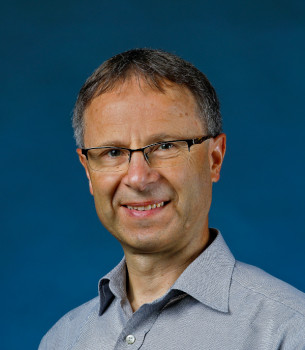 Seminar: ARQ Research Seminar: Towards Autonomy in Robot-Assisted Surgery, by Prof Miloš Žefran Seminar: ARQ Research Seminar: Towards Autonomy in Robot-Assisted Surgery, by Prof Miloš Žefran
Centre for Advanced Robotics ARQ Research Seminar Speaker: Prof Miloš Žefran Department of Electrical and Computer Engineering, University of Illinois Chicago Title: Towards Autonomy in Robot-Assisted Surgery Robot-assisted surgery (RAS) provides significant benefits over traditional open and laparoscopic procedures. It also offers the possibility of automating surgical interventions, particularly in light of recent advances in visual computing. My talk will describe our research program towards automating... |
| Tue 4 Nov 2025 10:00 - 16:00 |  AI Collaborative Workshop AI Collaborative WorkshopCentre for Probability, Statistics and Data Science We aim to bring together experts in AI and those using (or hoping to use) AI methods in their research, from all the five Schools of the Faculty of Science and Engineering. We envisage that the workshop will strengthen the ties between Schools, build a research community around the development and use of AI and develop teams and ideas well ahead of funding calls. Participation by registration: Registration is now closed. Organisers: Marcella Bona, Thomas Roelleke, Kostas Papafitsoros,... |
October 2025 | |
| Mon 13 Oct 2025 13:00 - 14:00 | 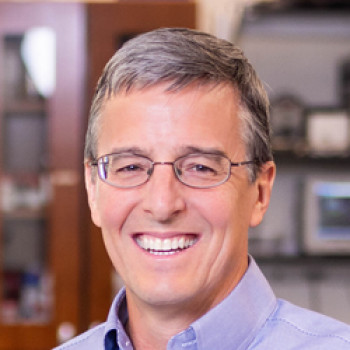 Seminar: Sir Peter Mansfield Lecture: "Bioelectronics – From Exploratory Research to Medical Translation" by Professor John Rogers, Querrey Simpson Institute for Bioelectronics, Northwestern University Seminar: Sir Peter Mansfield Lecture: "Bioelectronics – From Exploratory Research to Medical Translation" by Professor John Rogers, Querrey Simpson Institute for Bioelectronics, Northwestern University
Centre for Electronics Bioelectronics – From Exploratory Research to Medical Translation Please do register for the seminar at this link Advanced electronic/optoelectronic technologies designed to allow stable, intimate integration with living organisms will accelerate progress in biomedical research; they will also serve as the foundations for new approaches in monitoring and treating diseases. Specifically, capabilities for injecting miniaturized, biocompatible electronic systems and other components into... |
| Tue 7 Oct 2025 12:00 - 13:00 | 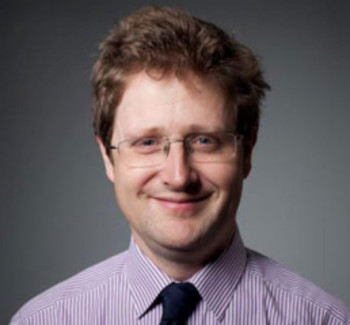 SEMS Seminars: Professor Simon Holmes, Consultant Oral and Maxillofacial Surgeon, Barts Health NHS Trust, and Professor of Craniofacial Traumatology, Queen Mary University of London SEMS Seminars: Professor Simon Holmes, Consultant Oral and Maxillofacial Surgeon, Barts Health NHS Trust, and Professor of Craniofacial Traumatology, Queen Mary University of LondonCentre for Bioengineering Seminar Title: Understanding the Biomechanical Construct of the Craniofacial Skeleton: Testing to Failure and Reconstruction Abstract: The craniofacial skeleton plays a vital role in both function and aesthetics, yet it is uniquely vulnerable to trauma. In this seminar, Professor Simon Holmes will explore the biomechanical principles underlying craniofacial injuries, focusing on mechanisms of fracture, approaches to reconstruction, and the role of translational research in advancing... |
| Wed 1 Oct 2025 13:00 - 17:30 | 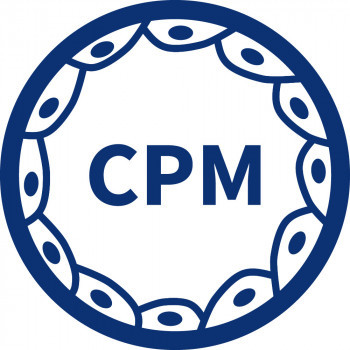 2025 UK Organ-on-a-Chip Symposium 2025 UK Organ-on-a-Chip SymposiumCentre for Bioengineering 1 October 2025 Please register at: https://www.eventbrite.co.uk/e/2025-uk-organ-on-a-chip-symposium-tickets-1470416387999?aff=oddtdtcreator Join us for a program of UK and international speakers, working at the cutting edge of organ-chip research. The full program is below, and confirmed speakers include: Professor Ignacio Ochoa (University of Zaragoza) Professor Rocky Tuan (Chinese University of Hong Kong / University of Pittsburgh) Professor Roisin Owens (University... |
September 2025 | |
| Mon 29 Sep - Fri 3 Oct 2025 | 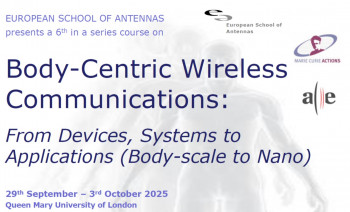 European School of Antennas Course on: BODY-CENTRIC WIRELESS COMMUNICATION: from devices, systems to applications (body-scale to nano) European School of Antennas Course on: BODY-CENTRIC WIRELESS COMMUNICATION: from devices, systems to applications (body-scale to nano)Centre for Electronics In the framework of the European School of Antennas and Propagation (ESoA), we are delighted to share the final announcement for the 6th in a series course on Body-Centric Wireless Communication: From Devices, Systems to Applications (Body-scale to Nano), which will take place at Queen Mary University of London, UK, from 29 September to 3 October 2025. This advanced course will cover the fundamentals, challenges, and cutting-edge developments in body-centric wireless communications, spanning... |
| Tue 2 Sep 2025 12:00 - 13:00 | 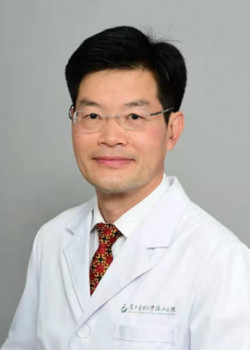 SEMS Seminars: Prof Qian Wang, Zhujiang Hospital, Southern Medical University SEMS Seminars: Prof Qian Wang, Zhujiang Hospital, Southern Medical UniversityCentre for Bioengineering Seminar Title: Current Research on Extracellular Vesicles in China - from Bench to Bedside About the speaker: Professor Qian Wang, MD, PhD is Professor and Chief Physician at Zhujiang Hospital, Southern Medical University. He earned both his MD and PhD from Southern Medical University and later undertook postdoctoral research at the University of Oxford. Prof. Wang's career spans precision diagnosis of cardiovascular diseases, fundamental and applied studies on extracellular vesicles, and... |
July 2025 | |
| Tue 29 Jul 2025 12:00 - 13:00 |  SEMS seminars: Associate Professor Haguy Wolfenson, Rappaport Faculty of Medicine at the Technion, Israel Institute of Technology SEMS seminars: Associate Professor Haguy Wolfenson, Rappaport Faculty of Medicine at the Technion, Israel Institute of Technology
Centre for Bioengineering Title: Understanding and modulating cell fate decisions mediated by cell-ECM interactions Abstract: Cellular interactions with the extracellular matrix (ECM) play a fundamental role in essential cell functions. The ECM provides mechanical and biochemical cues that influence intracellular signaling and gene expression, leading to different cell fate decisions. In this talk, I will share our latest research on how ECM cues influence cellular decision-making and explore how these processes... |
| Wed 23 Jul 2025 15:00 - 16:00 | 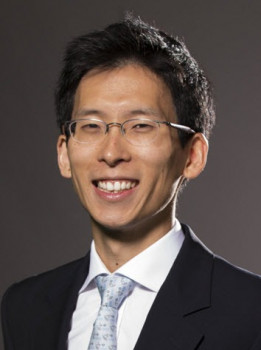 Bioengineering Research Seminar: Advancing cell and gene therapy via microfluidics - Prof Aram Chung, Korea University Bioengineering Research Seminar: Advancing cell and gene therapy via microfluidics - Prof Aram Chung, Korea UniversityCentre for Bioengineering Title: Advancing cell and gene therapy via microfluidics Abstract: Engineering and reprogramming innate cell functions require the efficient delivery of biomolecules—such as DNA, RNA, plasmids, proteins, and nanomaterials—into the cytosol or nucleus. Conventional methods, including viral vectors, cationic lipids, and electroporation, are widely used but often fall short in achieving both high delivery efficiency and robust cell viability, while preserving cellular phenotype and... |
| Mon 7 - Tue 8 Jul 2025 | 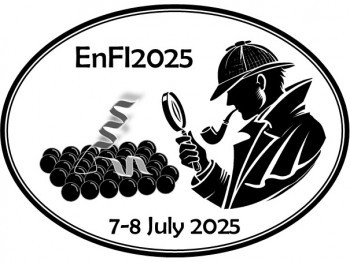 16th International Workshop on Engineering of Functional Interfaces (EnFI2025) 16th International Workshop on Engineering of Functional Interfaces (EnFI2025)Centre for Bioengineering Register at: https://www.sems.qmul.ac.uk/events/enfi2025/ We are excited to announce the 16th International Workshop on the Engineering of Functional Interfaces (EnFI 2025), taking place at Queen Mary University of London on 7th and 8th July 2025. EnFI is a dynamic, multidisciplinary international workshop. It covers all aspects of functional interfaces from materials science, physics, chemistry and engineering to medicine and biology. Why Attend EnFI 2025? Gain insights from... |
June 2025 | |
| Tue 10 Jun 2025 11:30 - 12:30 | 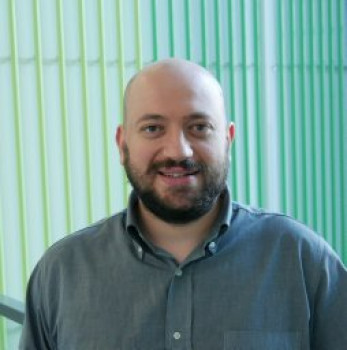 Seminar: Terahertz and Water presented by Dr Fabio Novelli from The University of Southampton Seminar: Terahertz and Water presented by Dr Fabio Novelli from The University of SouthamptonCentre for Electronics Click Here for Teams Link Summary An inherently powerful tool to study liquid water is terahertz (THz) radiation because it can reveal the sub-ps fluctuations of the water network: radiation between about 1 and 25 THz is strongly absorbed by intermolecular collective modes of hydrogen-bonded water molecules, which can be thought of as "small and short-lived phonons". The talk is divided into two parts. In the first part I will describe a novel approach, dubbed "intense THz time-domain... |
| Tue 10 Jun 2025 12:00 - 13:00 | 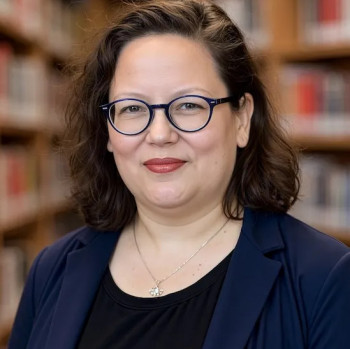 Digital twins to improve maternal and fetal health Digital twins to improve maternal and fetal healthCentre for Bioengineering Engineering and Women's Health Michelle Oyen is a global leader in bioengineering and women's health. She has investigated many diseases and designed approaches in engineering to prevent, diagnose and treat pregnancy complications such as preterm birth. Approaches include the development of multi-scale models of transport mechnisms in the placenta, microstructural fracture models of uterine-placental interface delamination, and digital twins of C-section scar pregnancy. At the seminar,... |
| Mon 2 Jun 2025 11:00 - 12:00 | 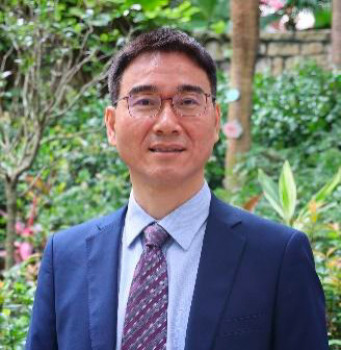 Seminar: Smart Non-Contact Wireless Sensing for Biomedical Applications - Prof Yongxin Guo, City University of Hong Kong Seminar: Smart Non-Contact Wireless Sensing for Biomedical Applications - Prof Yongxin Guo, City University of Hong KongCentre for Electronics Click Here to Join the Seminar Online Summary Traditional life activity detection methods rely on contact sensors, such as the electrocardiogram (ECG), ballistocardiogram (BCG), photoplethysmography (PPG), sphygmomanometer, mercury thermometer, breath belt, and accelerometer-based wearable devices. The contact sensor-based methods can cause physical and psychological discomfort to the users, and some do not support long-term monitoring. Smart wireless sensing of vital signs, including... |
May 2025 | |
| Wed 7 May 2025 09:00 - 18:00 |  Conference: London Polymer Group Meeting 2025 Conference: London Polymer Group Meeting 2025Centre for Chemical Research The London Polymer Group gathers the community of polymer chemists, physicists and engineers interested in the design of macromolecular structures for a broad range of applications, from energy storage and electronics to therapeutics delivery and tissue engineering. The LPG annual meeting is an excellent opportunity to network and for early career researchers to present their work to our community. The 2025 annual LPG meeting will be hosted by Queen Mary University of London. We have an... |
| Wed 7 May 2025 15:00 - 16:00 | 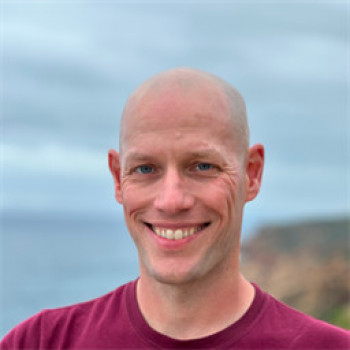 SEMS seminars: Google DeepMind Chair of Machine Learning and AI, Professor Marc Deisenroth, UCL SEMS seminars: Google DeepMind Chair of Machine Learning and AI, Professor Marc Deisenroth, UCLCentre for Bioengineering Title: Opportunities for Machine Learning to Accelerate Progress in Environmental Modelling Abstract: Modelling complex environmental systems, such as weather or oceans, is extremely challenging. Recent advances in machine learning and AI to automatically learn complex relationships from data have opened up opportunities for data-driven methodologies to make a meaningful contribution to environmental science and even play the role of a transformative technology within environmental... |
| Fri 2 May 2025 10:30 - 11:30 | 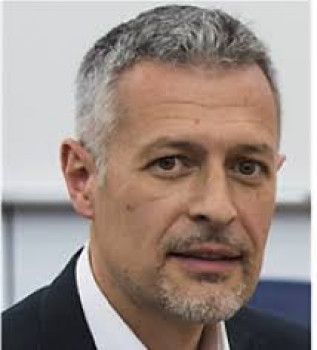 Seminar: Cyber-Prosthetics as Body-centric Electromagnetic Devices: From Structural to Metal-free Bio-integrated Antennas Seminar: Cyber-Prosthetics as Body-centric Electromagnetic Devices: From Structural to Metal-free Bio-integrated AntennasCentre for Electronics Online Teams Link Summary The concept of Cyber-Prosthesis redefines implantable devices not only as mechanical surrogates but also as bodycentric wireless nodes capable of sensing, storing, and transmitting biophysical information. Within this paradigm, the structural components of prosthetic implants—such as orthopedic fixtures, dental screws, stents, and heart valves—are converted into antenna systems operating in the UHF RFID band. These systems communicate through body tissues by... |
April 2025 | |
| Wed 30 Apr 2025 10:30 - 11:30 | 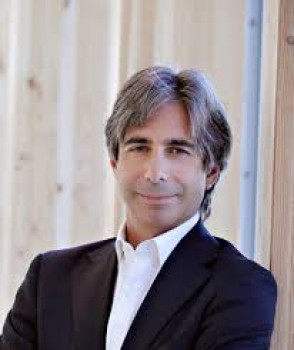 Seminar: Interfacing Electromagnetics With Life Sciences and Medicine: Bioelectromagnetics and brain-machine interfaces for the treatment of cognitive conditions, glaucoma, and disorders of the retina Seminar: Interfacing Electromagnetics With Life Sciences and Medicine: Bioelectromagnetics and brain-machine interfaces for the treatment of cognitive conditions, glaucoma, and disorders of the retinaCentre for Electronics Online Teams Link Summary Although technical challenges are still daunting, the clinical utility of neuroprosthetics has increased dramatically over the past few years. This has been accomplished through the convergence of numerous disciplines, which have individually added fundamental understanding/capabilities to systems that interface with the human body to restore senses and movement, or treat prevalent diseases that have currently no foreseeable cure. In this talk, we will cover... |
| Thu 10 Apr 2025 10:00 - 12:00 | Seminar: Nano Dimension – Changing the way world manufactures Centre for Electronics Summary Chris Garden from NanoDimension will give a talk about their 3D printer and explain how it can be used for printed circuit board fabrication. The talk will be followed by Q&A and a demonstration of the printer. The content of the talk is... |
| Wed 2 Apr 2025 15:00 - 16:00 | 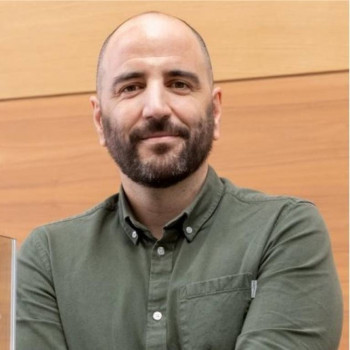 Queen Mary Bioengineering Seminar Series - Dr Alberto Elosegui-Artola, The Francis Crick Institute Queen Mary Bioengineering Seminar Series - Dr Alberto Elosegui-Artola, The Francis Crick InstituteCentre for Bioengineering Title The ECM viscoelasticity controls tissue spatiotemporal dynamics Abstract The mechanical properties of the extracellular matrix (ECM) regulate cellular processes during development, cancer and wound healing. Despite the universality of the ECM's viscoelasticity, how viscoelasticity affects tissue function is unknown. I will present our results where we show that the passive viscoelastic properties of the ECM regulate tissue architecture and patterning both during development and... |
| Tue 1 Apr 2025 12:00 - 13:00 | 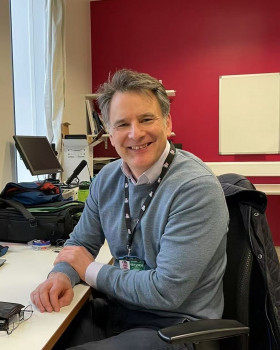 SEMS seminars: Defence Professor of Military Surgery and Trauma, Hon Professor of Surgery, Consultant Surgeon, Colonel Nigel Tai, QMUL & Royal London Hospital SEMS seminars: Defence Professor of Military Surgery and Trauma, Hon Professor of Surgery, Consultant Surgeon, Colonel Nigel Tai, QMUL & Royal London HospitalCentre for Bioengineering Title: Non-Compressible Haemorrhage - a problem for Engineers? Abstract: Exsanguination - literally bleeding to death - is the biggest cause of preventable trauma death, both in military and civilian settings. New solutions to this problem are required, and engineers will be a vital part of the progress towards such solutions. This talk will convey the problem to an engineering audience and help generate background understanding. About the speaker: Colonel Nigel Tai is the UK... |
March 2025 | |
| Tue 4 Mar 2025 12:00 - 13:00 | 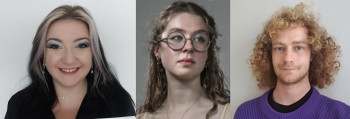 SEMS PDRA-PhD seminars: Poppy Smith, Mia Frances Crowther and Rory Douglas Bennett SEMS PDRA-PhD seminars: Poppy Smith, Mia Frances Crowther and Rory Douglas BennettCentre for Bioengineering Title: Automated Production of Engineered Nerve Tissue Talk Summary of Poppy Smith: Traumatic peripheral nerve injury has a sudden, debilitating effect on millions of people every year, resulting in loss of sensation and movement, significantly reducing quality of life. The standard clinical treatment to repair peripheral nerve injuries which result in a gap in the nerve tissue, is the nerve autograft. The autograft has multiple limitations including donor site morbidity and availability,... |
February 2025 | |
| Wed 19 Feb 2025 15:00 - 16:00 | 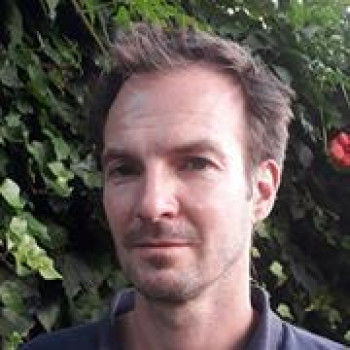 SEMS seminars: Prof Guillaume Charras, UCL SEMS seminars: Prof Guillaume Charras, UCL Centre for Bioengineering Title: Control of morphogenesis by the actin cortex in single cells and multicellular aggregates Abstract: The actin cortex is a thin meshwork of actin filaments, myosin motors and actin-binding proteins that lies below the membrane. Mechanical changes in the cortex play an essential role in morphogenesis of cells and tissues. I will present work examining the role of the cortex in cell division and the shape of multicellular aggregates. As they enter mitosis, cells undergo profound... |
| Thu 6 Feb 2025 15:00 - 16:00 | 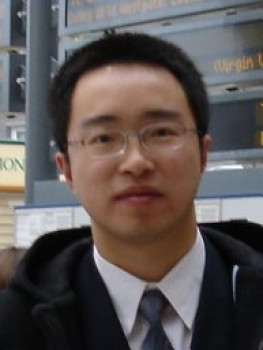 SEMS seminar: Professor Yang Liu, University of Exeter SEMS seminar: Professor Yang Liu, University of ExeterCentre for Bioengineering Title: Harnessing Non-Smooth Dynamics for Self-Propelled Gastrointestinal Endoscopies with Vibro-Impact Capsules Abstract: The rectilinear motion of a capsule can be generated using a periodically driven internal mass interacting with the main body of the capsule as a 'hammer' in the presence of external resistances. At resonance, this 'hammer' enables the capsule to progress efficiently through complex environments without the need for external accessories. This simplicity in... |
| Tue 4 Feb 2025 12:00 - 13:00 | 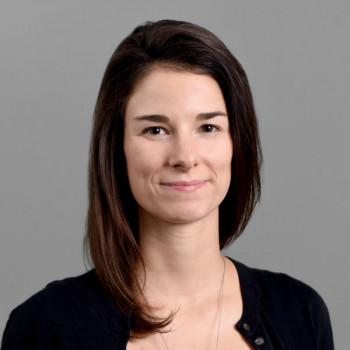 SEMS seminars: Associate Professor Julianne L. Holloway, Arizona State University SEMS seminars: Associate Professor Julianne L. Holloway, Arizona State UniversityCentre for Bioengineering Title: Designing Biomaterials with Spatiotemporal Control for Tissue Engineering Applications Abstract: Advances in materials science, biomolecule delivery, and cell biology has enabled significant innovations within the field of tissue engineering and regenerative medicine over the past few decades. Nonetheless, minimal translation of tissue engineering-based therapeutics to the clinic has occurred. An ongoing challenge within tissue engineering is the difficulty in regenerating... |

